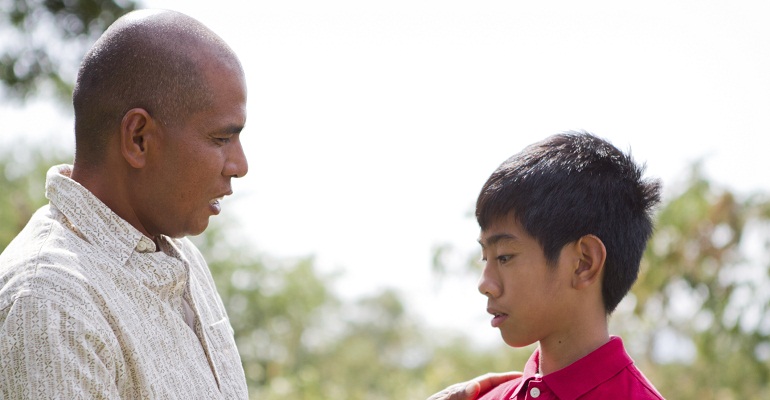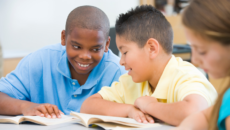As parents, we often make the mistake of talking about the place (Texas, Oregon) or culture (Hispanic, Chinese, Russian) into which our children were born and thinking that by doing so we are answering our children’s question, “Where did I come from?” Certainly it is important that our children are familiar with and feel comfortable in their ethnic culture. But, children are born not of a culture or a country, but from people, from two specific human beings.
Many adoptive parents talk about birth parents when their children are preschoolers and then forget that they need to repeat the discussion many more times through the years. Not only do young children sometimes forget what they have been told, but their questions become more complex as their cognitive abilities grow. Celebrating your child’s ethnic culture through gatherings, culture camps, and celebrations at home is helpful and important for nurturing a healthy sense of self. If you are doing these things already, by all means continue. But also take time out to consider what your child is hearing, seeing, and learning about his biological origins. Do you mention your child’s birth parents?
Share with your child what you know about her birth parents. Even the simplest details are helpful for a six-to-eight year old. Were the birth parents tall or short, old or young? Do you know what they did for a living, what their hobbies or interests were? Is there anything in the records about the birth grandparents? You may already have access to this kind of information. If not, you may be able to find it in adoption agency records. This is the age when children wonder about their birth mother’s first name, her telephone number, what she looked like.
Cultural activities cannot adequately address children’s often unspoken questions about their birth parents. An eight-year-old boy came with his parents for counseling. The parents were concerned and upset that the boy had recently spit on the candles on his birthday cake, and couldn’t figure out why. Each year, the boy attended a two-week Korean culture camp that took place shortly before his birthday. He enjoyed the camps, and while there, he truly felt good about being Korean. But each year, by his birthday, he was upset. “It’s good to be Korean,” he told his parents and the counselor, “just not my kind of Korean. I guess they [my birth parents] weren’t good people. You never mention that they exist.”
If little or no information is available about your child’s birth parents, you can still help your child through the gift of the words “maybe” and “I wonder.” “Maybe you inherited your talent for music from your birth mother.” “I wonder if your birth father loved sports as much as you do.” “I wonder if you got your beautiful eyes from your birth mother.” By using such statements, you are not creating a false history or lying to your child, but only validating that, like everyone else, has a unique genetic and biological connection to humanity, as well as a close and loving family connection to you, who are his parent.


